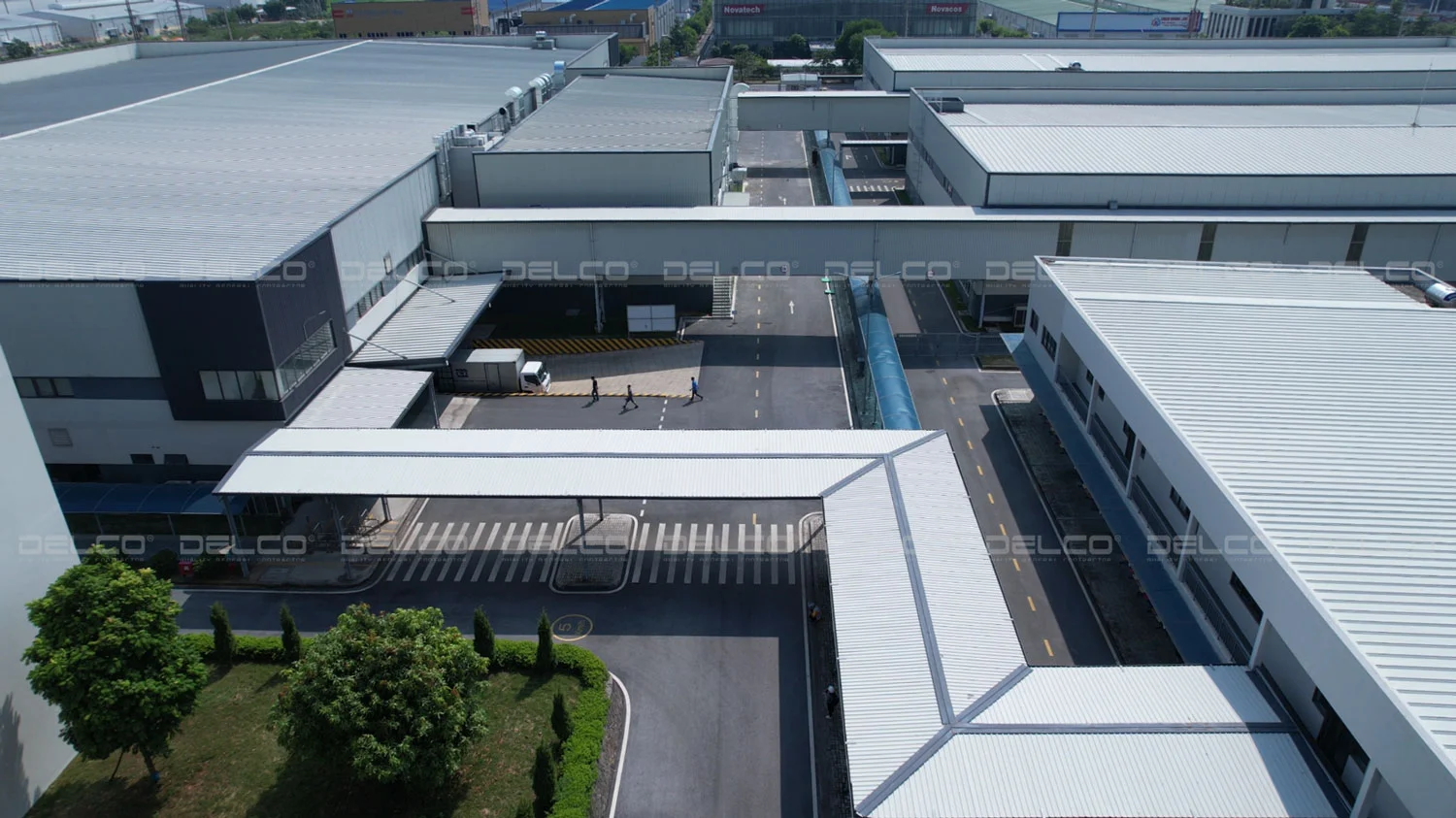Selecting a reliable, prestigious design contractor for a factory construction project is a comprehensive evaluation process. It involves criterias such as experience, expertise, management capabilities, design quality, and the practical application of technical solutions in real projects…
Important criterias when choosing a factory design contractor
Professional certificates
The design contractor’s expertise is a core factor to the project’s success. When selecting a factory design contractor, investors should pay attention to some mandatory certifications, such as: certificate of design competence, design appraisal (level II or higher), certificate of eligibility for fire protection service business), and individuals participating in the project must hold professional licenses for designing industrial construction works.
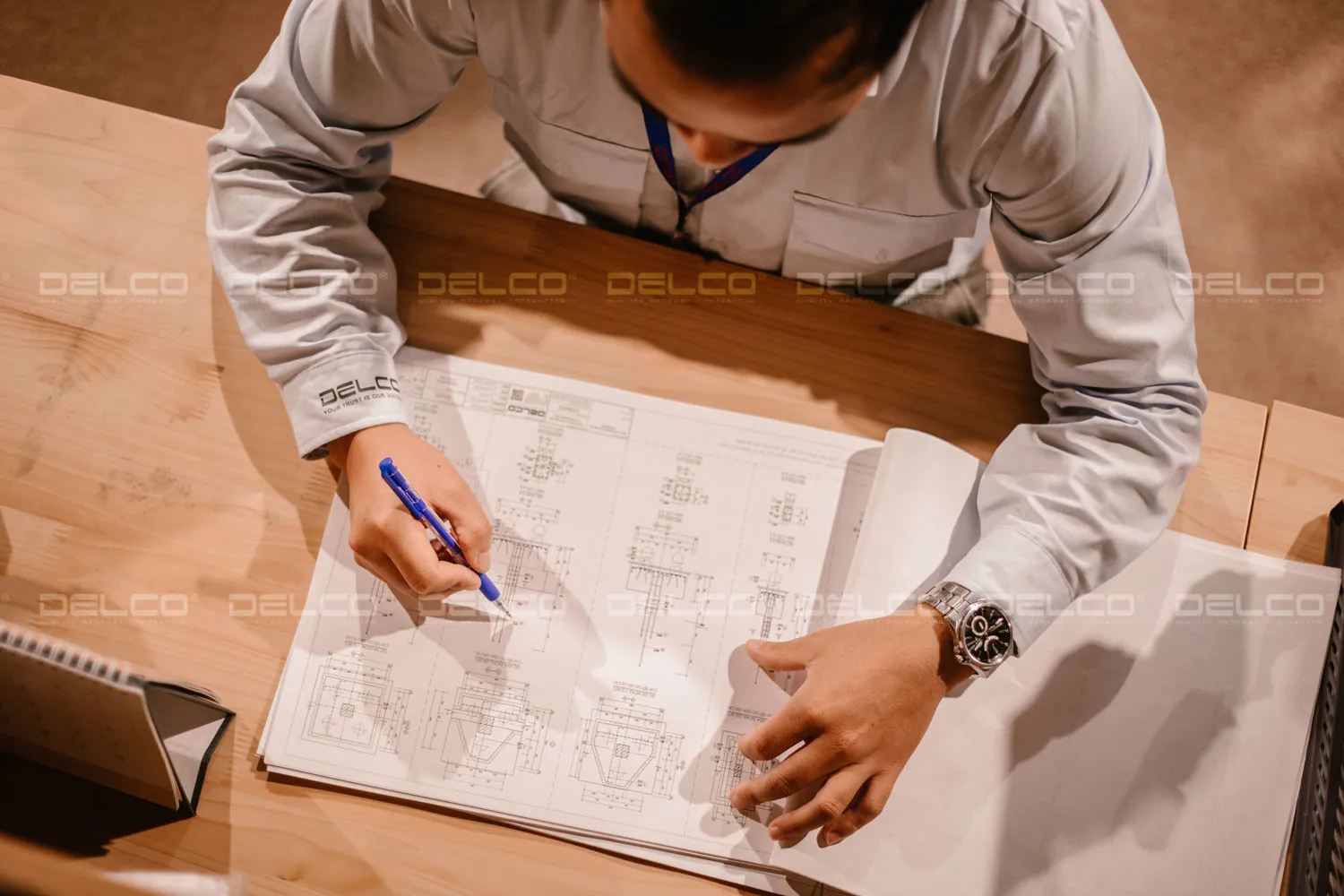
In addition, investors may request the contractor to provide professional certificates and awards achieved by their architects and engineers. Some prestigious certificates include the BIM certificate (for contractors capable of using BIM to manage design, optimize costs, and reduce construction time), LEED or EDGE certificates (for projects that meet sustainable environmental standards), or other industry awards that demonstrate the contractor’s capability and professionalism.
Practical experience
Investors should choose a design contractor that has practical experience in their production sector or in industries with similar requirements. Contractors who have previously designed similar factory will have a thorough understanding of technical requirements, safety standards, and specific factors, ensuring the design optimally meets the investor’s specific needs.
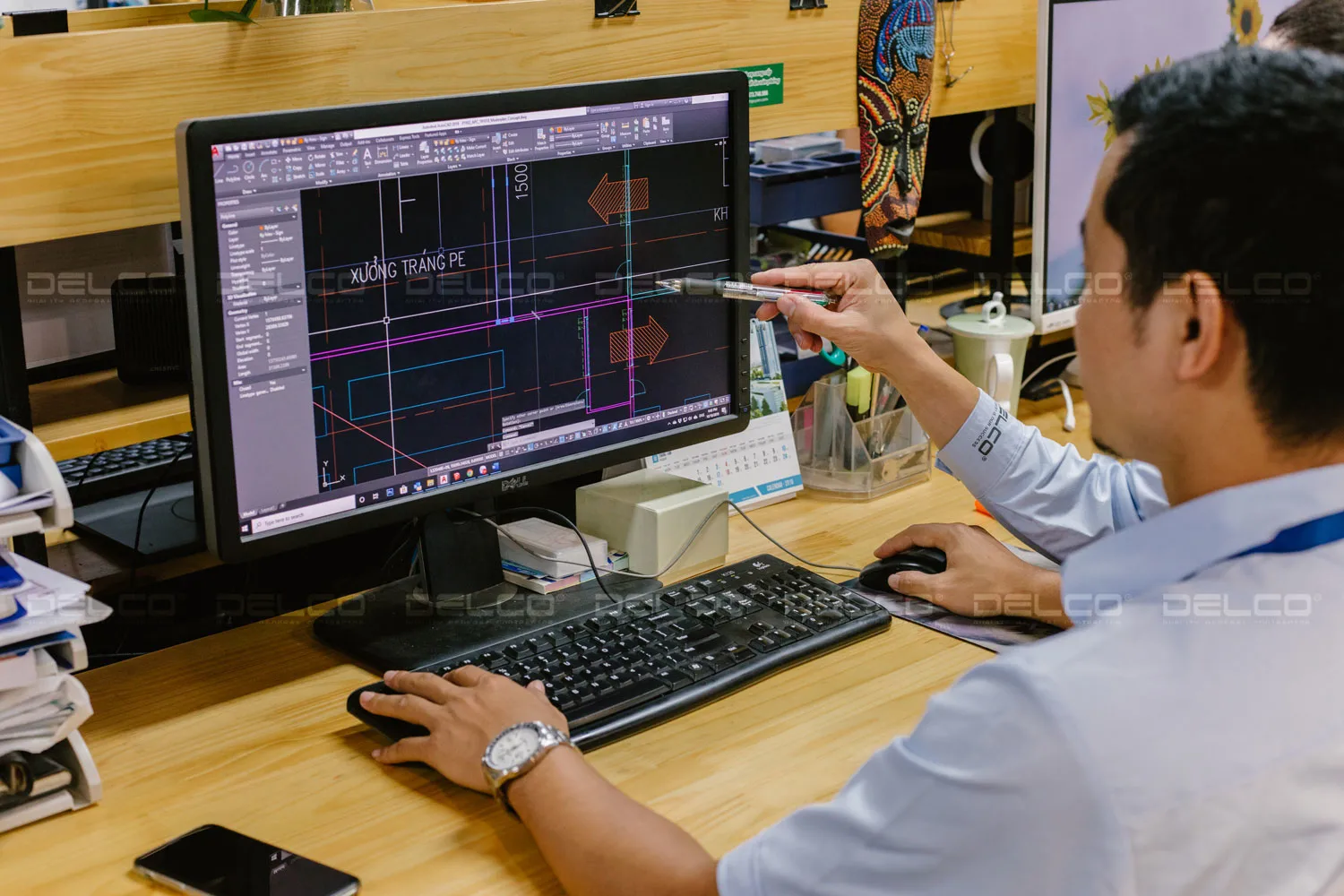
For example, in the chemical manufacturing industry, corrosion resistance and environmental treatment are highly complex, requiring a design contractor with experience to ensure safety and compliance with environmental standards. In paper manufacturing, paper and raw materials are flammable, so it’s essential to select a design contractor who is knowledgeable about fire prevention and safety standards. In the mechanical and automotive industries, the nature of production demands flexible space organization, and the contractor must have experience to provide optimal design solutions, including efficient production line layouts, sturdy structural designs, and ensuring operational precision and safety.
Visiting completed projects
Investors can request to visit the contractor’s completed projects to assess the practical application of the design. This helps determine whether the contractor’s design solutions are feasible, easy to build, and meet operational requirements, or if they merely focus on aesthetics. A factory design solution must not only look good but also ensure efficiency, convenience during factory operations, and ease of maintenance.
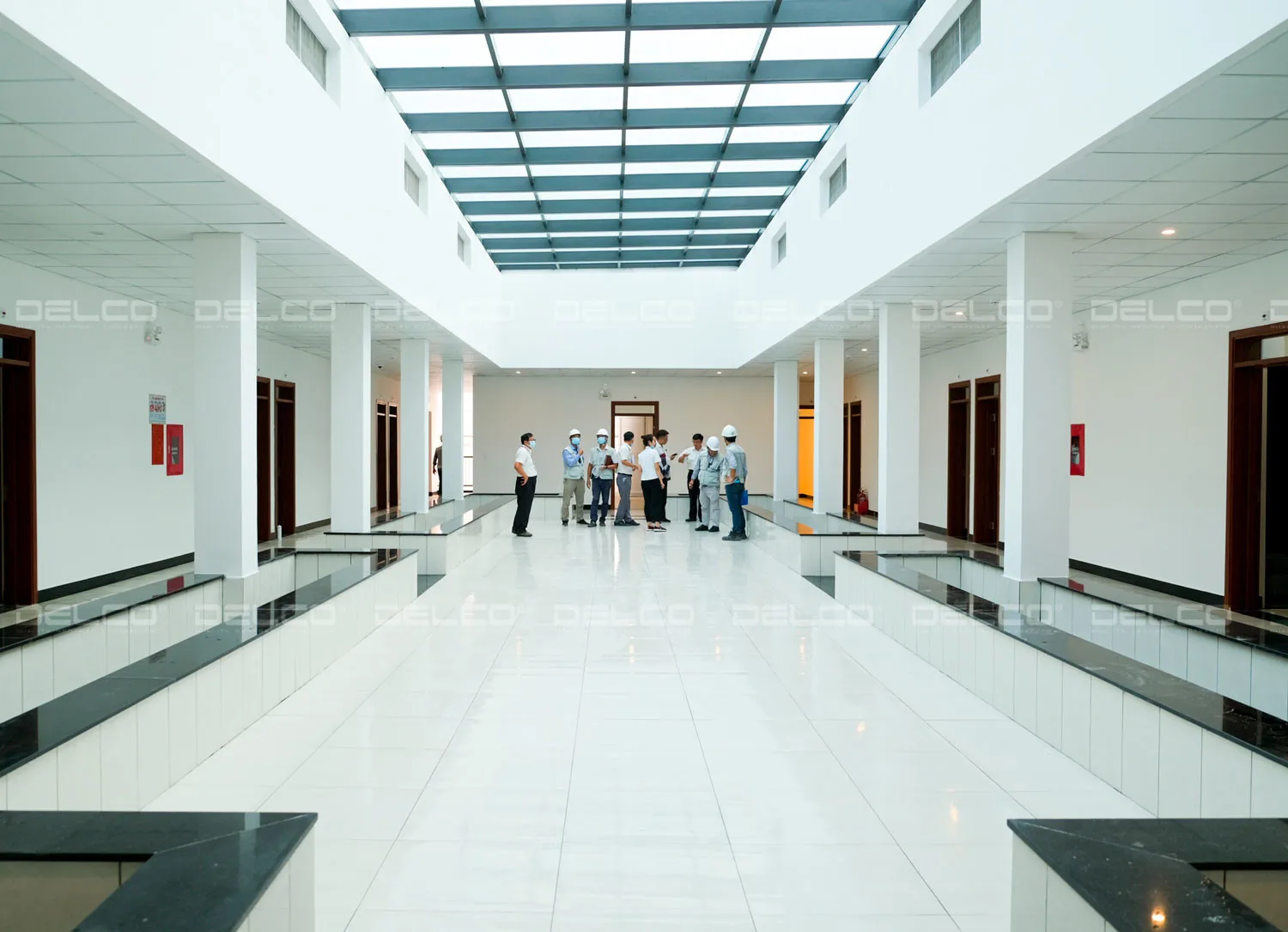
Investors should evaluate and select a reliable, prestigious design contractor by visiting completed projects.
When visiting projects completed by the contractor, investors can also assess whether the materials proposed by the contractor meet the technical standards and aesthetic requirements of the project. Additionally, the durability and quality of the facility after several years of operation provide clear evidence to evaluate the long-term effectiveness and reliability of the contractor’s design solutions.
Evaluation from customers and partners
Before making a decision on selecting a design contractor, the investor should seek feedback and reviews from relevant stakeholders, such as customers and partners. These evaluations offer the investor a comprehensive and accurate view of the contractor’s expertise and quality.
A reputable contractor usually maintains good relationships with suppliers, ensuring a smooth supply chain process without disputes or litigation. Long-term collaborations with multiple investors are signs of a responsible and trustworthy contractor. Gathering opinions from the contractor’s previous clients about their consulting abilities, design quality, and adherence to industrial standards is also a useful method for evaluating and selecting a suitable and high-quality design contractor.
Should you choose a Design contractor or a Design-Build contractor?
Design contractor
A design contractor specializes in providing architectural and engineering design services for construction projects. After the design is completed, the investor can then begin the bidding process for construction. The biggest advantage of choosing a design consulting contractor is cost transparency. With a complete design, the investor can invite construction contractors to bid based on the Bill of Quantities (BoQ), making it easier to compare and select the most suitable contractor in terms of cost efficiency and project schedule.
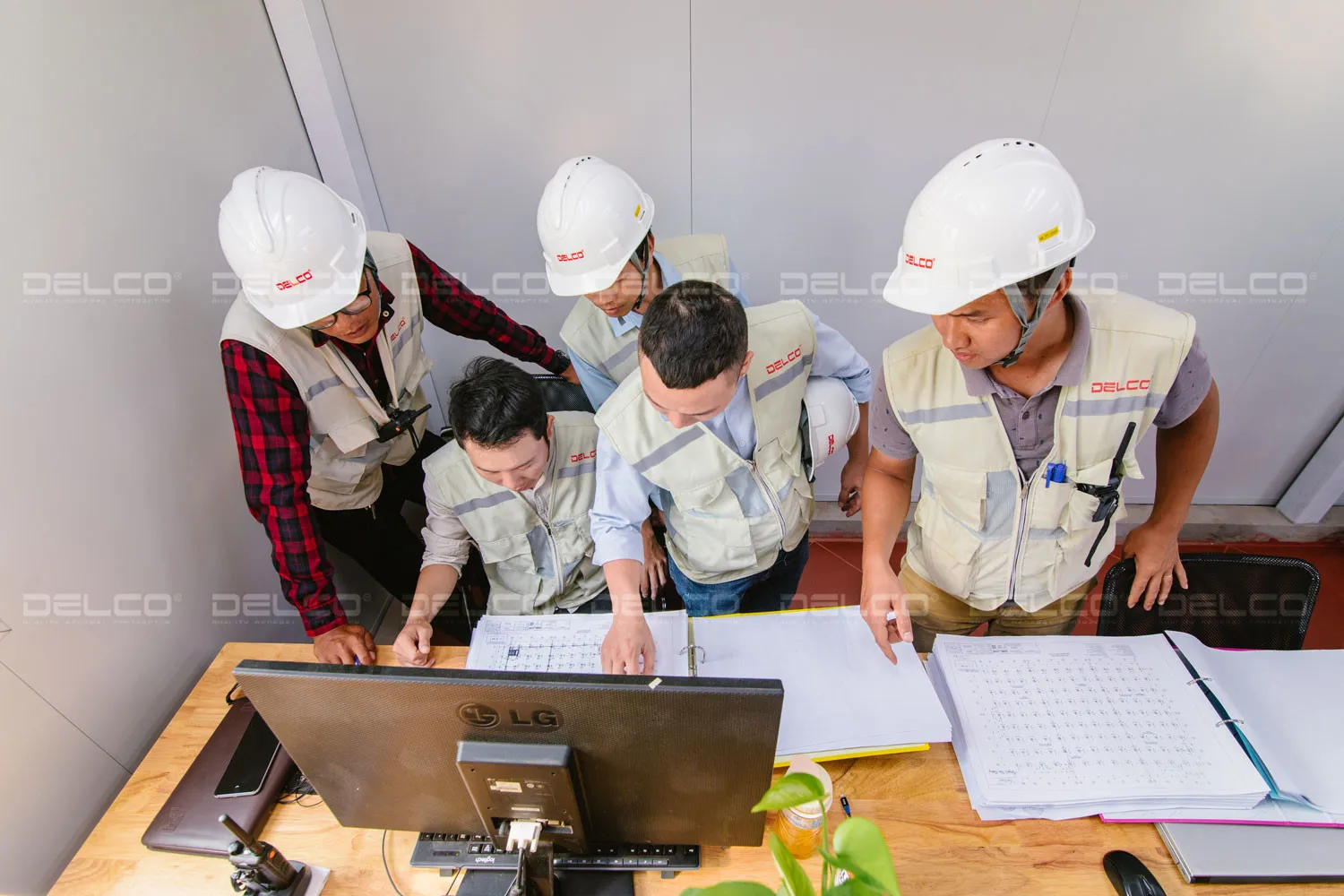
However, project implementation time may be extended since the design and construction phases are separated, and additional time is needed for applying procedures. Moreover, this model lacks flexibility during construction. If there are errors or discrepancies between the design and the actual construction, the construction contractor must consult with the design contractor and seek approval from the investor, then wait for design adjustments. This can directly affect the project’s progress and costs.
Design-Build contractor
A Design-Build contractor takes full responsibility for both the design and construction of the project, covering everything from factory infrastructure to mechanical and electrical (M&E) systems. This model offers high flexibility during construction as the design and construction teams can work closely together. This allows for quick adjustments if issues arise, ensuring the construction process isn’t interrupted. Furthermore, choosing a Design-Build contractor can save time and optimize costs right from the design phase.
However, when choosing a Design-Build contractor, each contractor may propose a different design and technical solution, making it difficult for investors, especially those without industrial construction experience, to evaluate and choose between the options. This can reduce the ability to select the most optimal and suitable solution for the project.
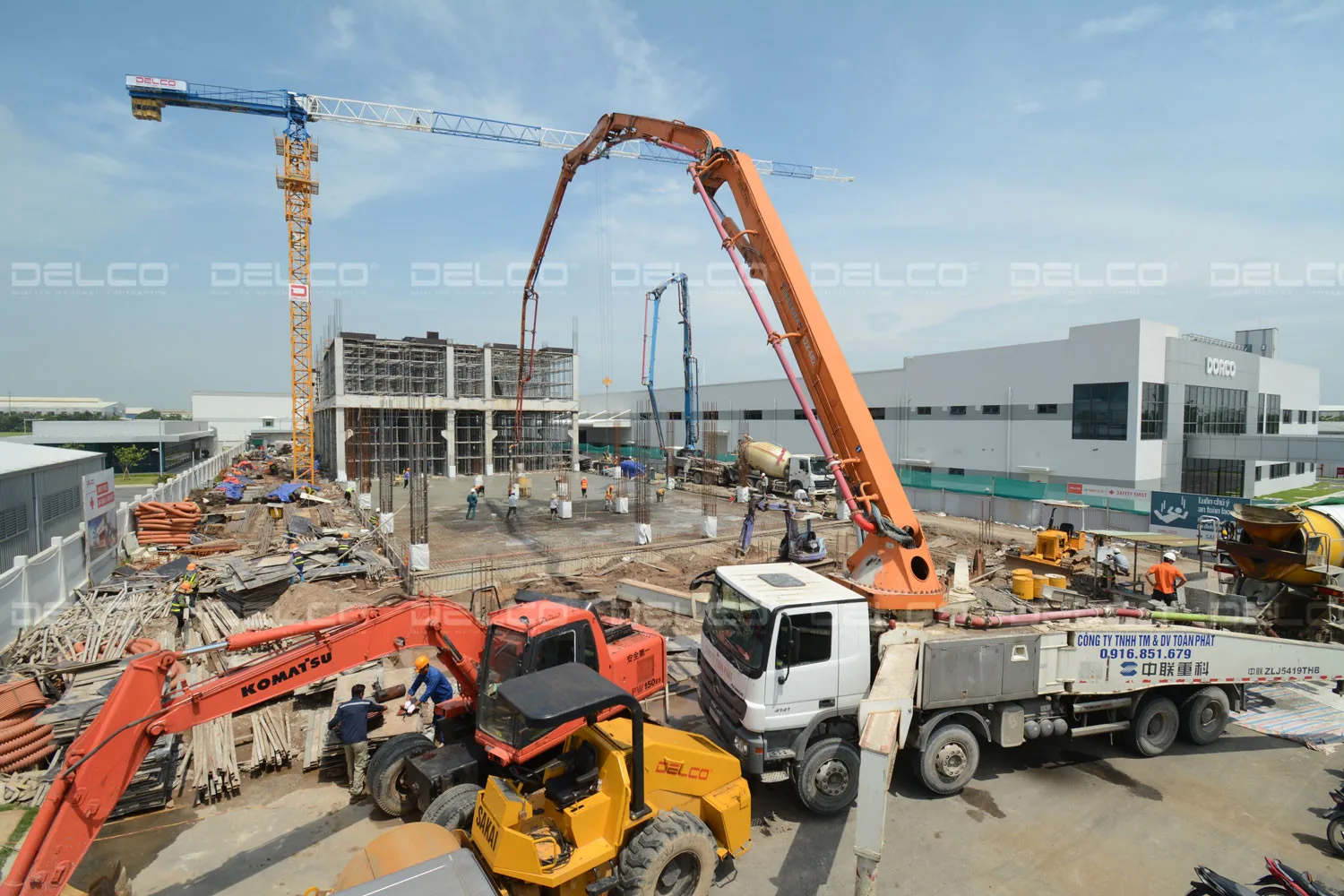
Depending on the technical requirements, budget, and timeline, the investor should carefully consider whether to choose a design contractor or a Design-Build contractor for their factory project.
DELCO’s factory design experiences
With nearly twenty years of experience in industrial construction, especially factory design – build, DELCO offers design and construction solutions tailored to the unique requirements of each industry, region, and investor. In every project, DELCO prioritizes and ensures key elements such as high durability, aesthetics, and the functionality of the factory. We propose optimal designs that are convenient for production and cost-efficient in terms of operations, while also ensuring full compliance with technical standards.
Featured projects – factories designed by DELCO Construction
Power Plus Technology electronic component factory project
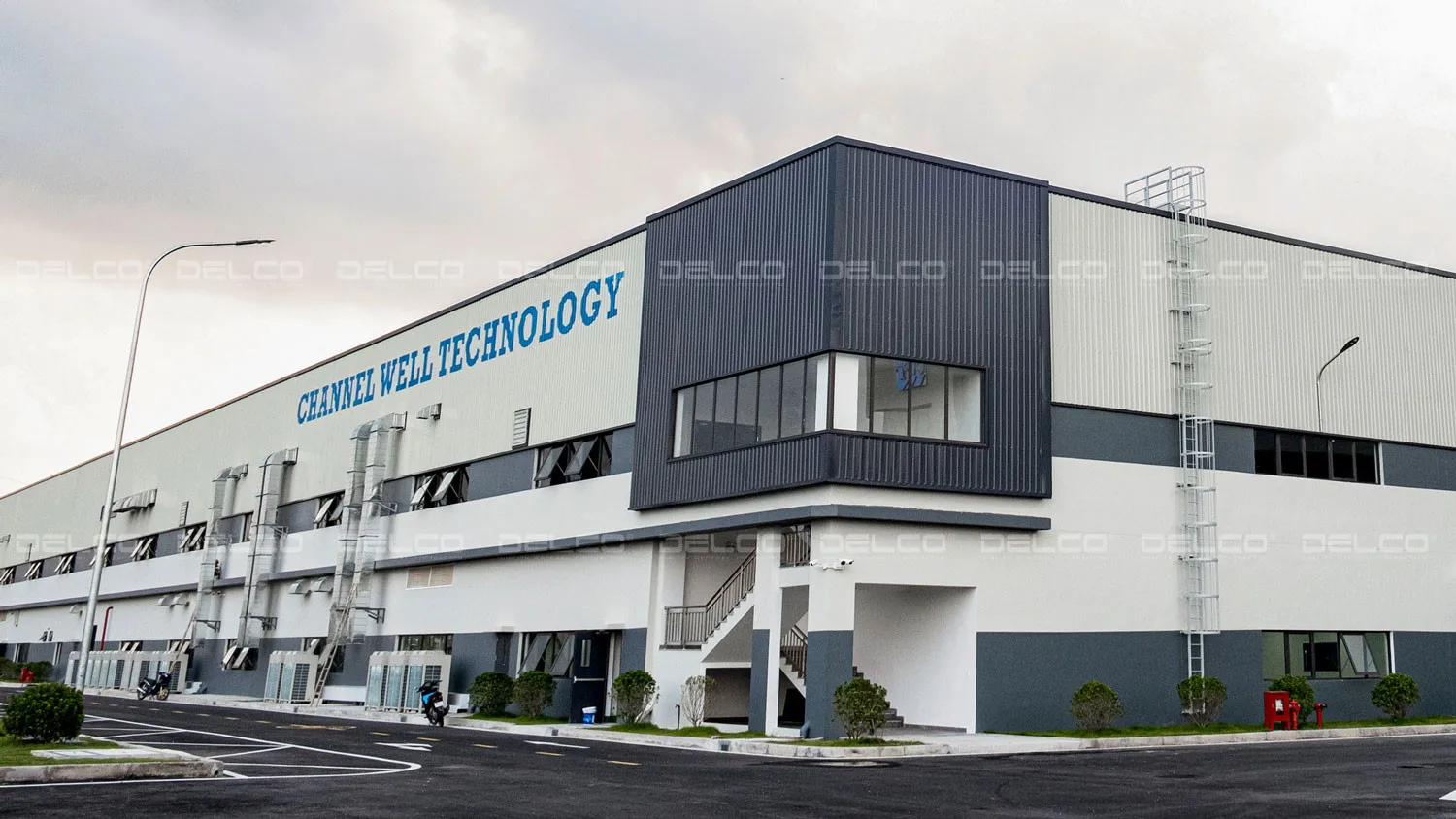
Between the workshops, office buildings, and the canteen, DELCO designed several green spaces, creating both a pleasant landscape and architectural harmony. The two-story factory layout optimizes space, while the structural design ensures load-bearing capacity and stable production operations.
NITTOKU Vietnam food-field factory project
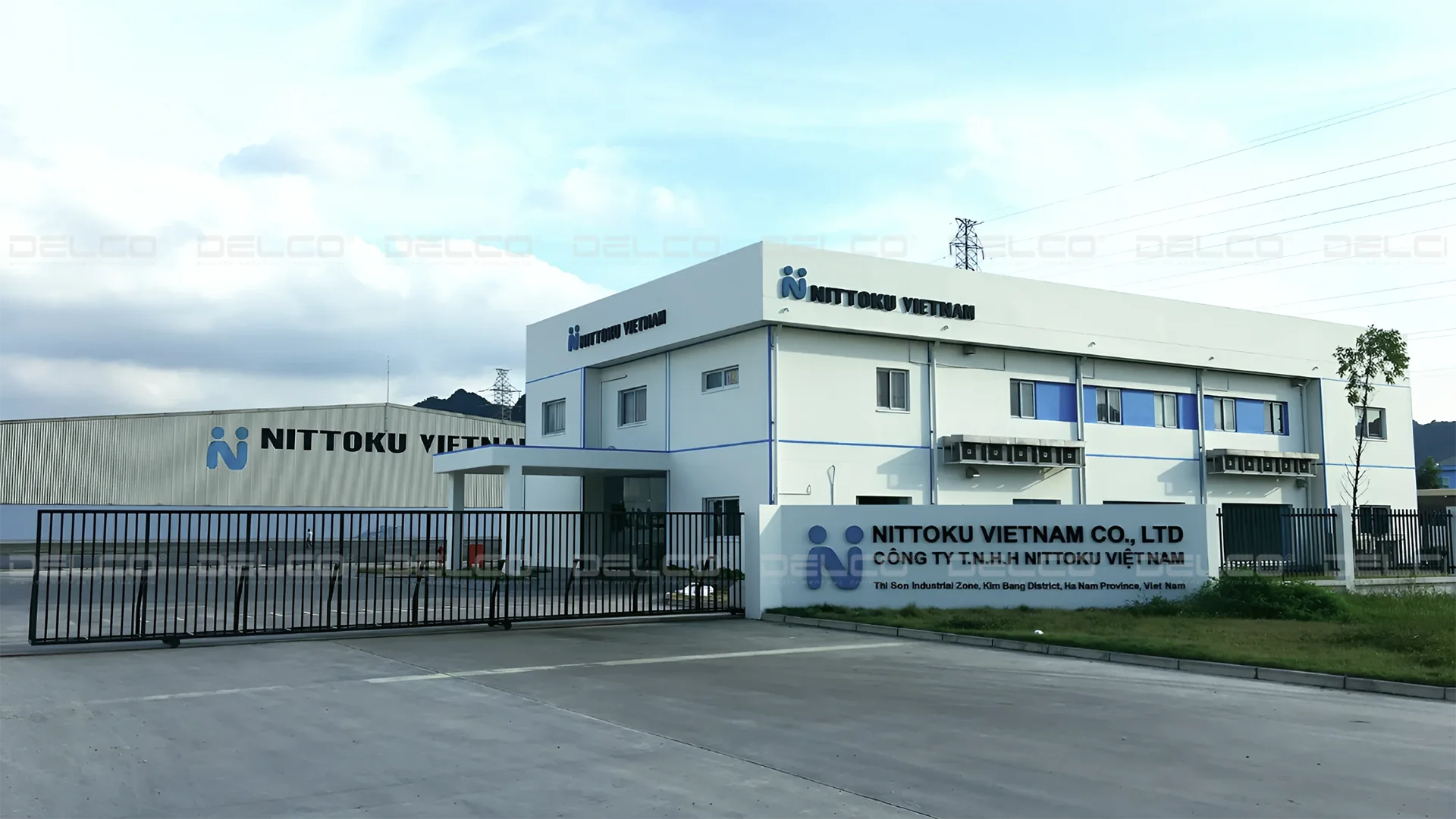
This large-scale factory involved numerous complex elements, such as high requirements for machine foundations, PIT systems, and underground tanks to accommodate the production line installation. DELCO engineers proactively proposed technical design solutions and worked closely with Japanese experts to complete these components on time and to the required quality standards.
IWASEYA Vietnam automotive factory project
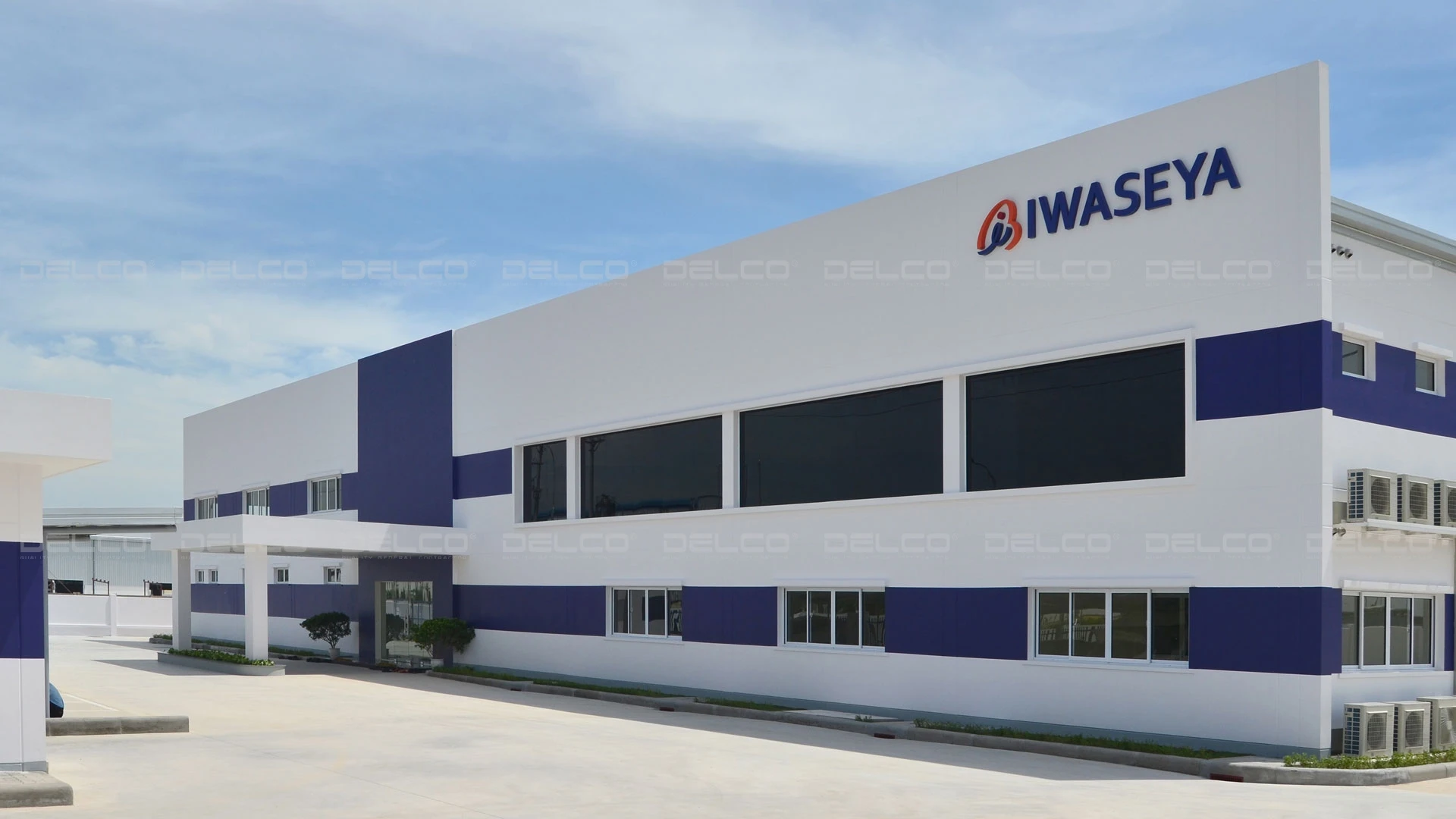
The factory features a clean, minimalist flat design with bold white and blue tones. DELCO also provided consultation and executed the installation of the factory’s mechanical and electrical systems. After ten years of operation, the factory still maintains its aesthetic appeal and continues to function effectively in production.
MIE Vietnam supporting-field factory project
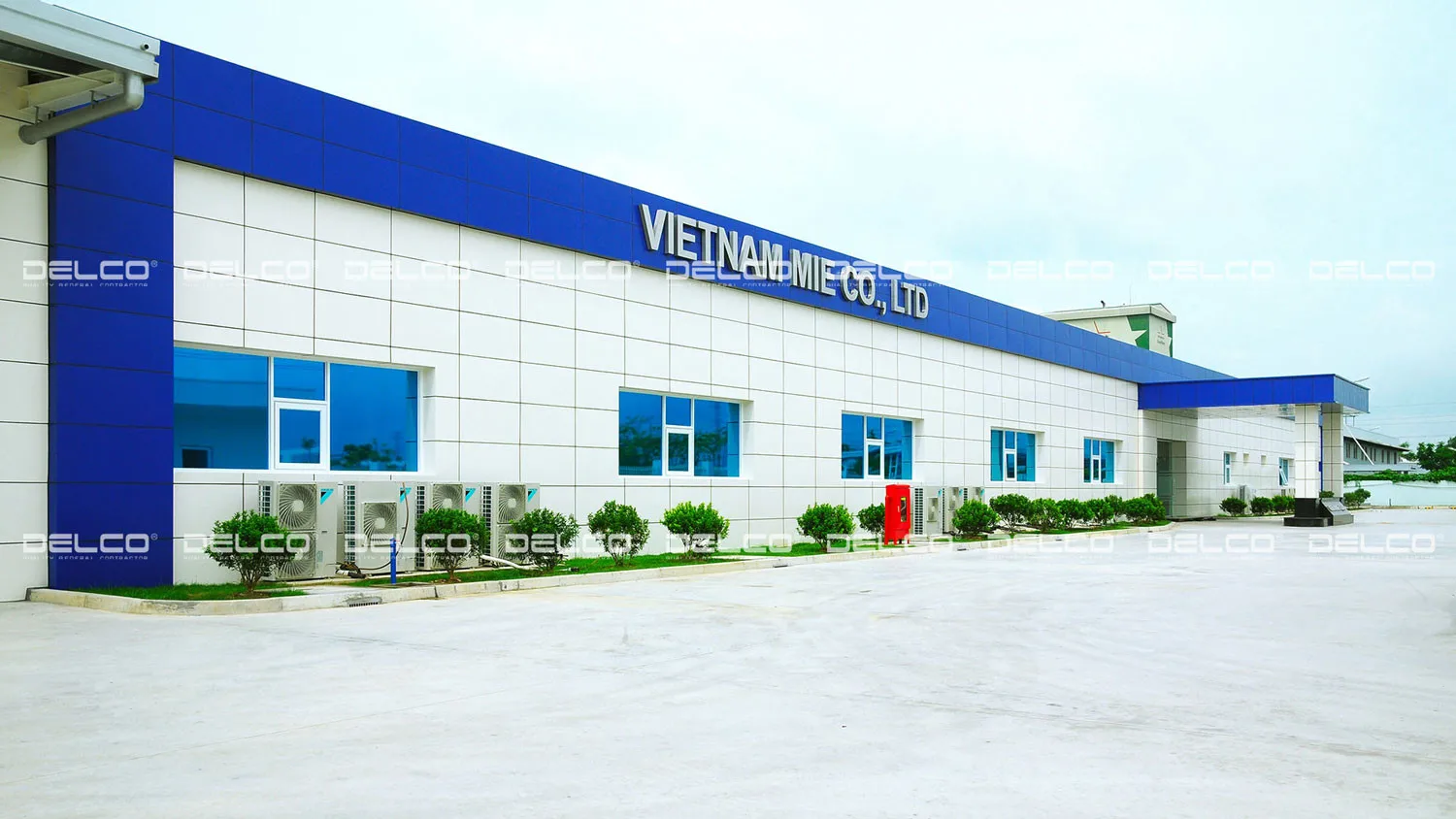
The factory was designed with an integrated office-factory layout. The office facade was finished with aluminum, enhancing architectural appeal while shortening construction time. Even ten years after project handover, the factory remains virtually unchanged in appearance with no signs of deterioration.
Toyo Solar solar factory finishing and interior project
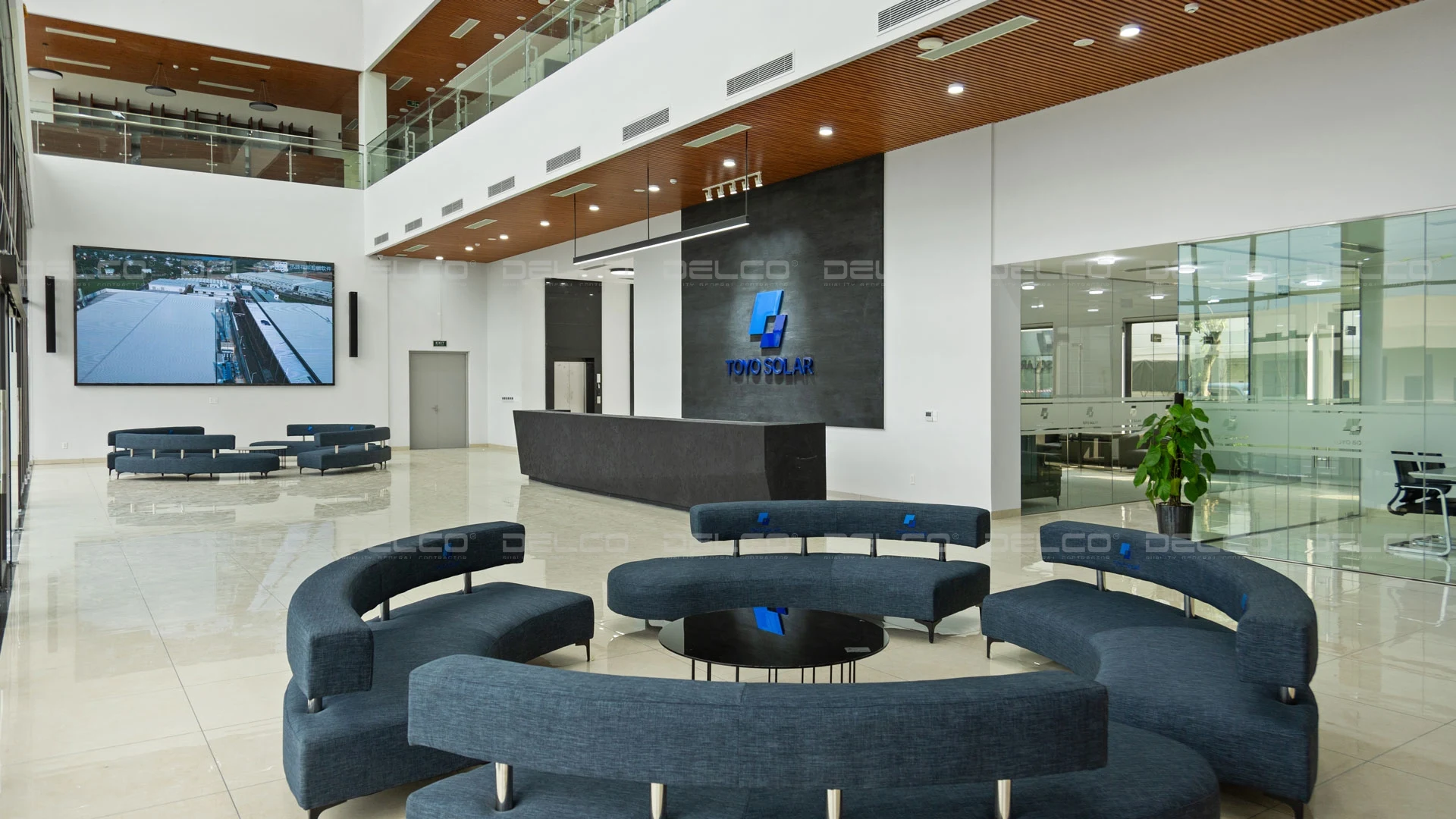
The office building features open spaces, atriums, and large lobbies. DELCO designed and installed a central VRF air conditioning system to create a spacious office environment, with air ducts and outlets neatly positioned on the roof for both aesthetic appeal and easy maintenance. Additionally, DELCO provided office equipment for the 8,000m² floor space of the factory’s office area.
See more: Featured factory construction project by DELCO
See more: Contact us for Investment consultancy and project management – Optimizing cost


